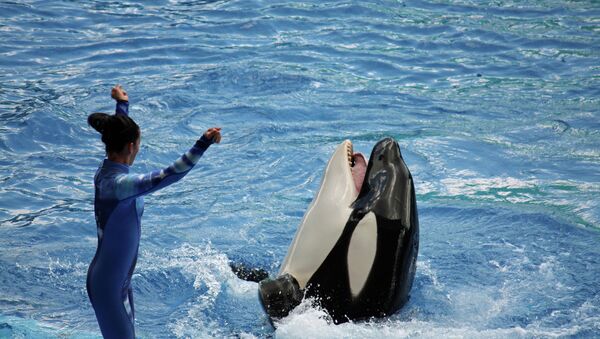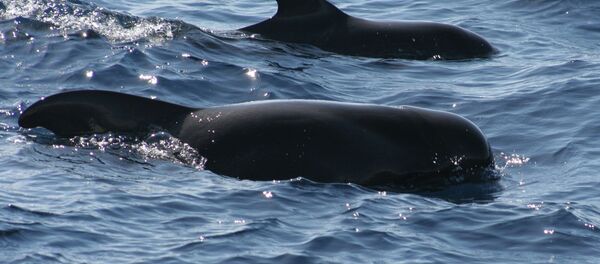“I wish I could say I was tremendously optimistic about Tilikum and his future, but he has a disease which is chronic and progressive and at some point might cause his death,” SeaWorld veterinarian Scott Gearhart said in a video accompanying the announcement. “We have not found a cure for this disease at this point.”
The 35-year-old Orca was captured near Iceland and taken from his mother when he was just two years old and has lived in the confines of SeaWorld tanks ever since. In the wild, orcas are highly social animals who live in stable social or family groups, traveling widely. It is not uncommon for animals to stay with their mothers for their entire lives.
Tilikum, like all captive male orcas, has a collapsed dorsal fin, something believed to be caused by the animals having no space in which to swim freely and being fed an unnatural diet of thawed dead fish. SeaWorld claims the collapsed fin is common for whales, but the condition has only been seen in wild orcas who are injured or dying.
Over the years, Tilikum has killed three people, something which experts have attributed to aggression caused by depression from being confined.
Lori Marino, executive director of the Kimmela Center for Animal Advocacy and a neurobiologist who has studied whales and dolphins for 25 years, told TakePart that the stress of being held in the tight confines of captivity arguably led to Tilikum’s illness.
“There is a well-known syndrome of how chronic stress affects the immune system and how that leads to infection and mortality,” Marino said. “Chronic stress, including depression, essentially releases chronic stress hormones into the body, degrading the immune system, which leads to increased vulnerability to infection.”




